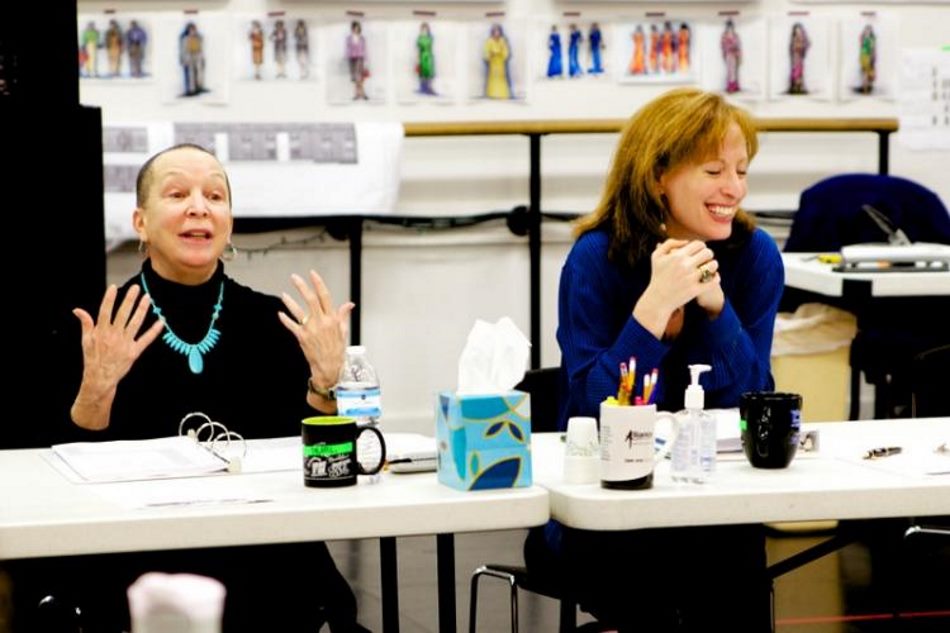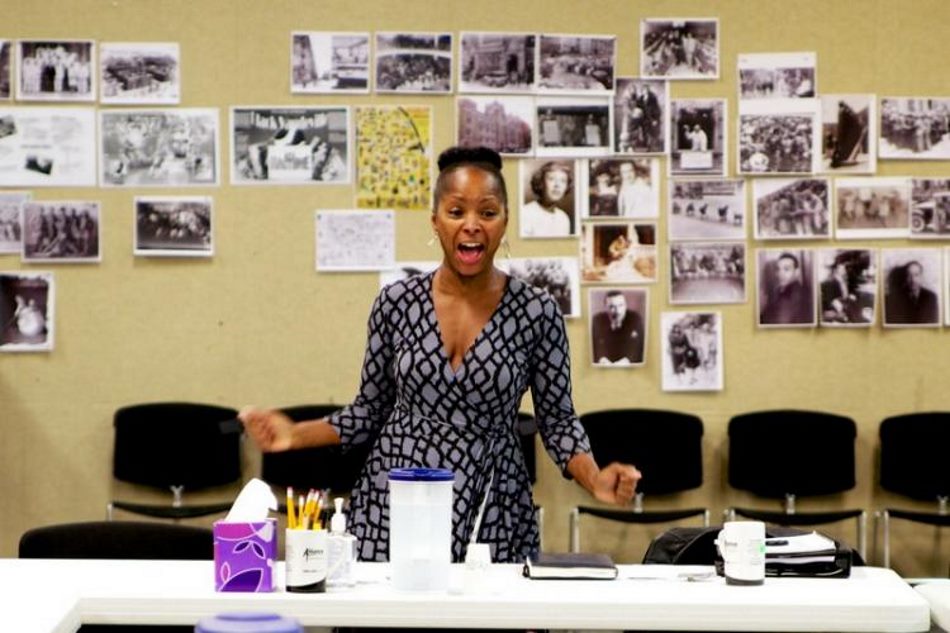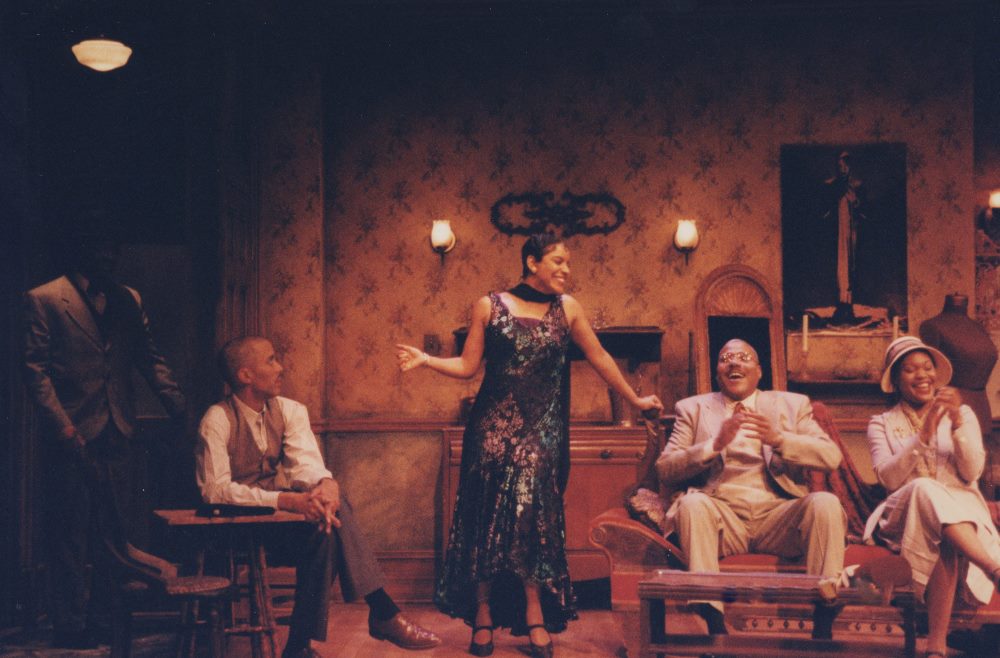ATLANTA: Blues for an Alabama Sky was first glimpsed through a car window. One evening more than 20 years ago, playwright Pearl Cleage and Zaron W. Burnett Jr., her husband and sometime collaborator, were driving back to Atlanta from the Alabama Shakespeare Festival. She had just finished speaking there about her play Flyin’ West, and about how theatre could be a way to build bridges between people.
Just down the street from where she was making her speech, the Ku Klux Klan was protesting Martin Luther King Jr. Day at the courthouse. She found the scene disturbing and needed some fresh air. So while her husband drove, she rolled down the window and let her head hang out, and she looked up at the starry, blue-black Alabama sky.
She wondered what it would be like for someone who was used to seeing thousands of stars in rural Alabama to suddenly pick up and move to a place like New York City, where there are so many tall buildings that seeing the sky at all is a kind of privilege. In her play, which premiered at the Alliance in 1995, a new transplant from the South joins a colorful cast of characters in Harlem in the post-Reniassance, Great Depression-era 1930s.
The play’s premiere was directed by then-artistic director Kenny Leon (and starred Phylicia Rashad); a new 20th-anniversary revival, which runs April 15–May 10, will be directed by the Alliance’s current artistic director, Susan Booth. Speaking from Atlanta, where she still lives, Cleage reflects on her two-decade-plus relationship with the Alliance and the enduring relevance of Blues for an Alabama Sky.

When was the first time you worked with the Alliance?
Flyin’ West was the first play that the Alliance commissioned from me. That was in 1992. After that I did Blues for an Alabama Sky and Bourbon at the Border, which [Kenny Leon] directed. Then I came back and worked with Susan on The Nacirema Society and then on What I Learned in Paris. It’s actually my sixth play at the Alliance—three with Kenny and three with Susan.
How have you maintained that relationship for 20 years?
There was a period of time when I wasn’t writing plays; I was writing books. Then, when I started again, the first play that I did was A Song for Coretta at Spelman College, which Susan saw, and that’s when we met. She invited me to work at the theatre, and we did The Nacirema Society. When we got done, she said that she wanted me to continue to have a great relationship with the Alliance, so she created a position for me called “playwright in dialogue.” Then we got a grant from the Mellon Foundation [in 2013], where they embed playwrights in the theatre, so that they are involved in the day-to-day activities at the senior staff level.
As the playwright-in-residence at the Alliance Theatre, what do you do?
I do a program every summer called the Collision Project, a program where 20 Atlanta-area high school students create their own theatre piece based on a classical text. We work with them for three weeks, I give them writing assignments and they perform an original piece. I also participate in readings for new work, such as the Kendeda Project readings, where they do a playwriting contest for graduate students and the winner has their work produced at the Alliance.
Has your view of Blues for an Alabama Sky changed since you first wrote it?
I don’t know that my view has changed; I haven’t seen a production of it in almost 20 years. I tend to not follow the productions, because you can get seduced by your own work that’s done, rather than create the new one, which is scarier because it isn’t done. I did reexamine it to make sure I felt that it stood up after 20 years, and it does. Some of the issues that I was trying to grapple with in the play are still very present in American life; birth control and issues of homophobia are still very alive.
Also, the heart of this play is about the importance of telling the truth. You can’t be a good friend to someone and lie. You can’t tell someone you love them and not mean it. That’s not something that goes in and out of style.

Tell me about your fascination with the Harlem Renaissance.
Langston Hughes has a two-part autobiography called The Big Sea, and it has little chunks about his life and the specific moment of the Renaissance. My mom used to read these stories to us at bedtime. I thought it would be interesting to write a play where this character [Leland] is a fish out water, arriving in Harlem from Alabama. I wanted him to encounter this group of bohemian artists at a time when the clubs were closing and they weren’t working regularly, and see how he deals with this different cultural environment.
Black women are at the center of most of your work. Do you feel a certain pressure to portray black women in certain way?
I don’t feel any pressure as an artist to do anything except tell the stories that occur to me. I don’t feel like I have to make up for anything or fill the gaps, because I don’t feel that way in my life. My stories tend to be stories of African-American women because I am an African-American woman, but I by no means want to say that I am the spokeswoman for African-American women. I just feel that we have interesting stories to tell, and I feel that way about all people.
What are you working on now?
I have a new play that is going to be at the Alliance next season called Tell Me My Dreams, and it’s the first play that I’ve ever written for young audiences. It’s for middle school students, because I have a grandson who just turned 13. It’s set between contemporary Atlanta and 1910, and it’s looking at what was once called the Atlanta Colored Music Festival. So I have these children from 2015 time-traveling back to 1910 to work with these other children whose family is very involved in the festival. The ones from 2015 have to come without their computers, tablets and smart phones, so they have to negotiate an environment where all of that stuff didn’t exist yet.
What is it about historical fiction that interests you?
Flyin’ West was the first play I ever did that was historical. I had one of those experiences that I never have, where I heard a character speak to me. I heard a complete monologue where a woman talked about surviving slavery and having 10 children sold away and setting out to walk west. I wanted to honor the fact that I heard this voice. I had been doing this long enough to recognize a sign.
Also, I’m somewhat of a technophobe, and if you write a play that is set in the modern world, you have to be prepared to look at the technology. It’s been kind of a relief to me to look at the periods before we had these things—to not have to figure out how my characters feel about smart phones. And not have to ask, do they have Facebook? Do they tweet?


